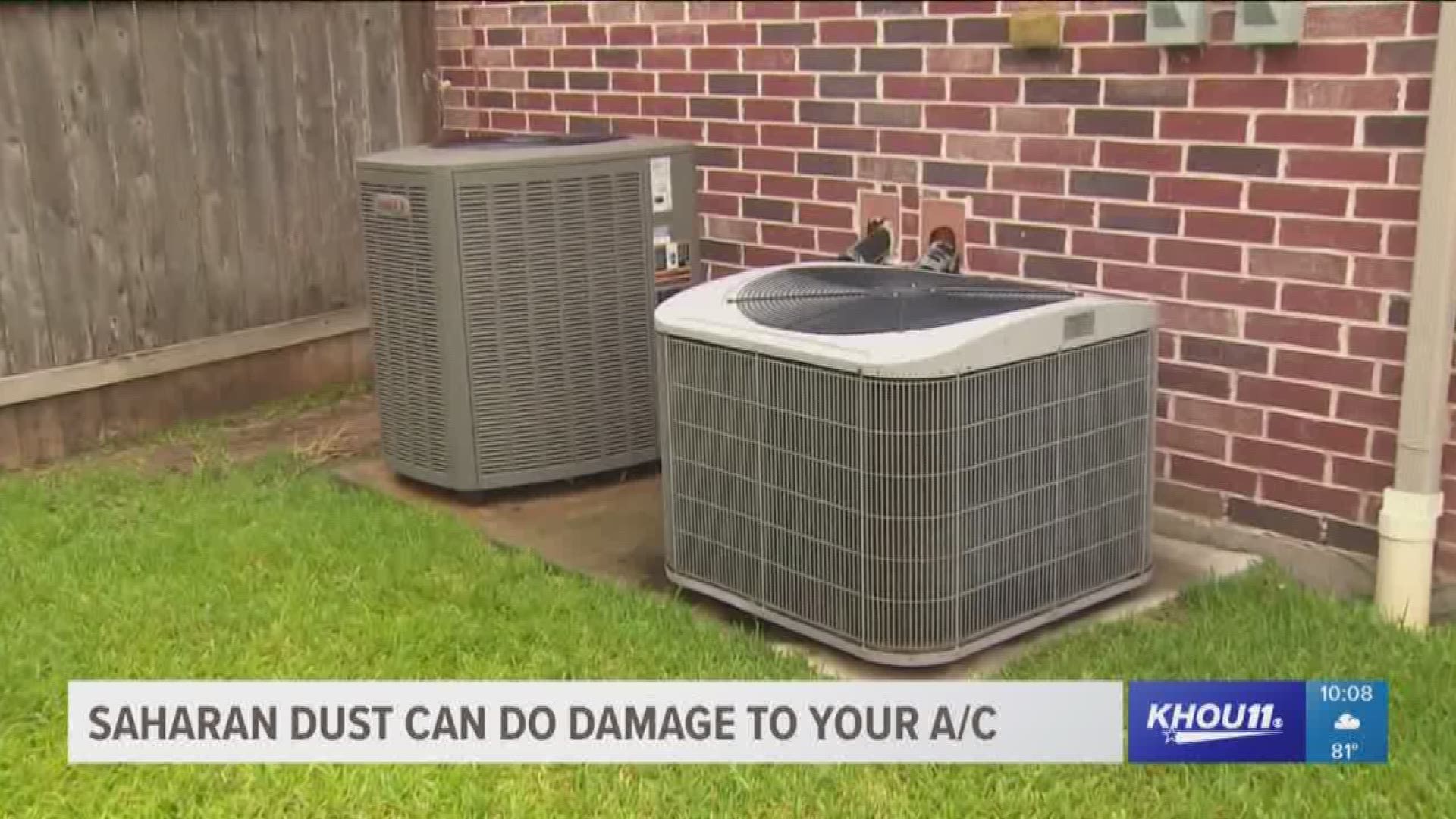RICHMOND, Texas - The Saharan dust that made its way across the Atlantic to Houston several times this year already is coming again this weekend.
Turns out, it can wreak havoc on air conditioning units.
Michael Wallman, owner of Texan Mechanical AC and Heating, is the guy all sweaty homeowners are relieved to see. He says this year, “our business has probably had our best business year yet.”
One reason for the increase in business is likely the Saharan dust.
“Any type of dust, pollen, grass,” Wallman explained, “that increases the pressure of the refrigeration system and in turn, when you have an increase in pressure, it increases the temperature as well.”
The dust builds up on the AC unit’s condenser coil.
“Making that compressor run longer, making the condenser fan motor run longer," he said.
That can lead to parts breaking down.
Wallman says there is a simple fix: cleaning the AC’s condenser unit. A typical cleaning will cost between $50 to $100.
“You are going to pay more if you have a motor that goes out or a compressor. I mean, that’s catastrophic...you almost have to replace the whole unit at that point," Wallman said.
KHOU 11 Meteorologist Brooks Garner has forecasted another round of Saharan dust for Houston over the next several days.
“Saharan dust is composed of fine particles of old fossilized micro-organisms,” Garner explained. “Sand that has blown thousands of miles across the Atlantic Ocean from a dry lake bed in the country of Chad in the southern Sahara Desert.”
Garner says Houston usually gets this sand once or twice a year, however, the event this weekend will be the fourth time this year.
That is why Wallman recommends looking at your coils and having them cleaned at least once a year. Although homeowners can clean their own condenser coils by shutting off the power supply, removing the unit’s fan and spraying water through the coils from the inside out with a hose, Wallman recommends leaving it to a professional. The fan blades can be dangerous, and there is risk of electrocution.

